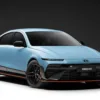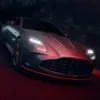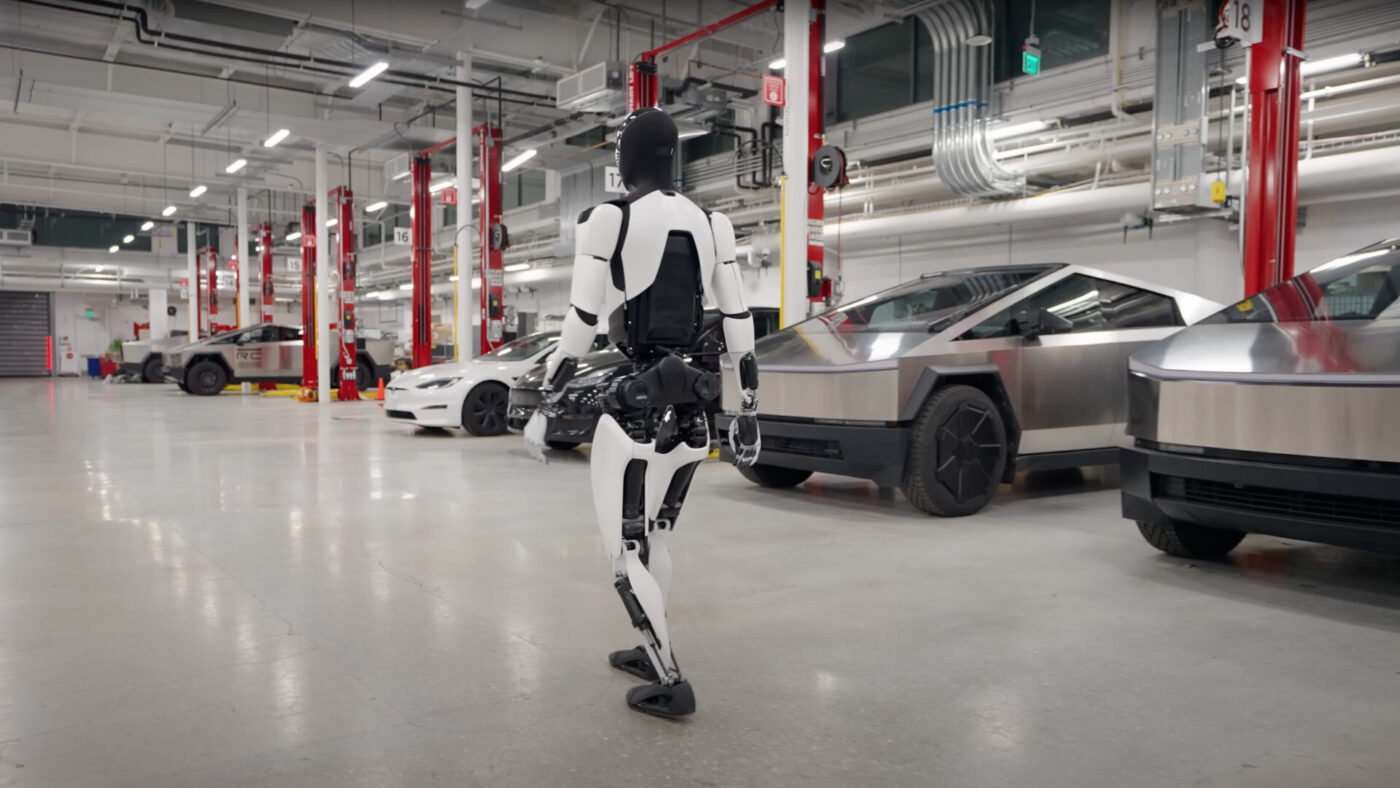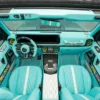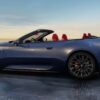A few days ago, at the World Motor Show in Geneva, the Renault 5 was presented, a car that, by all standards, could reach the magic threshold of 25,000 euros for a useful electric car. However, Renault did not do this, as the base model is not a "useful" electric car in many respects for the stated amount. It is precisely for this reason that a note is being created in which I outline precisely why I believe that we are witnessing the collapse of one of the largest industries on the old continent. And the fault is not electric cars, but the inability to change the culture in European car companies. And, of course, some other factors that are...
In order to understand my speech, one must look at Silicon Valley, where one "man" has redefined the rules of the automotive industry, especially from the point of view of the entire philosophy. Fifteen years ago, Tesla, under the leadership of capitalist dictator (I explain the term at the end of this entry) and genius Elon Musk, completely changed the rules of the game in the industry. It decided not to invest in advertising, but to focus on the optimization and continuous development of cars. At the same time, she believed that good products can take care of their own sales. The principle is very similar to that of Apple and other Silicon Valley startups.
The development of cars, at Tesla, represents a revolutionary turn in the automotive industry, moving away from traditional practices. Tesla, under the leadership of Elon Musk, is constantly changing the paradigm of developing, optimizing and improving its cars. Contrary to industry norms that have focused on occasional major models and updates, Tesla is introducing the concept of continuous development and improvement, similar to what happens in the world of software.
Elon Musk directs his approaches to car development to achieve higher profits and better products at the same time. To this end, it continuously optimizes the production process, choice of materials, built-in components such as relays and chips, and strives to reduce the number of parts and complexity of cars. This not only reduces production costs, but also increases production efficiency.
In addition, Tesla lowers the prices of its cars in order to increase sales volume, which allows it to lower its own price per unit. This strategy is based on the understanding that a higher volume of sales at a lower unit price can generate higher added values and profits in the long run. This approach is particularly interesting as it points to Tesla's goal of dominating the market through high volume sales rather than just high margins per unit sold.
The example of Musk's independent decision to remove the classic ultrasonic parking sensors and the external temperature thermometer in the Tesla Model Y shows his readiness for radical innovation. By replacing these components with digital solutions, such as temperature updates via the Internet, Tesla is reducing the car's physical components and weight (according to some reports as much as 17 kilograms by 2019), contributing to greater efficiency and lower production costs.
These strategies are not only fundamentally changing the way cars are developed and manufactured, but also how those cars are marketed and sold. With its approach to innovation and optimization, Tesla is setting new standards in the automotive industry that other manufacturers will have to follow if they want to remain competitive in the market in the future.
Tesla was simply born in an environment where the rules of the game are different, where the holy rule applies - "Release quickly, fix later". This is the typical philosophy of start-ups and "programmers" that the product must be constantly upgraded and improved, not as is the case with classic car makers who improve products in traditional development cycles. These usually last four years, with models being completely renewed every eight years. This means that the development of a completely new model starts every five to six years and is developed until the start of production. At that moment, however, the vast majority of technology and ideas are already "obsolete". A great example of evolution, as a counterbalance to the traditional, is the Tesla Model S, which has been relatively unchanged since 2013, although it represents a "new" car that includes most of the "feint" from 2024. And still, in the Plaid version, it represents the "top" electric cars in the world. So it is still number 1 in acceleration and some other segments.
Among other things, Tesla is developing the Optimus humanoid robot, not because it is simply cool, but because it wants to speed up work processes in factories and at the same time reduce its own cost per unit by eliminating the human factor in the factory. Investments in the development of artificial intelligence are necessary in this segment of the industry to accelerate and optimize production processes and for better prices for the customer and more units sold. Yes, Tesla's humanoid robot will replace workers from Mexico, the US, China, Germany and everyone else in Tesla's factories. Because the human factor is the biggest problem in achieving the "level" of quality and the final price of the product. Factories will be able to operate 24 hours a day, without unions. Elon Musk knows that without this humanoid robot, there is no future for his company. Open.AI is the result of this thinking by Musk, and his recent claim that Tesla is the largest AI company in the world is of course not wrong. The development of a self-driving car is only part of the development of a humanoid robot. It's practically the same thing.
In the company of the NIO factory in China, the humanoid robot Walker S is already working, which is the controller of the production line.
Now that we have a good understanding of how Tesla has changed the rules of the game and how they will continue to change, let's go back to the good old European companies. We learned how a modern company in the automotive industry thinks, and now let's look at giants such as BMW, Mercedes-Benz, Volkswagen and, of course, Stellantis.
As a journalist and car enthusiast, I had the opportunity to attend international car presentations - including electric ones. So, years ago, I saw the presentation of a new one Smart Electric in Barcelona, was at an international presentation Peugeot e-208 and met Porsche Taycan in Prague. In addition to these events, I attended a few others where I sat with engineers and development staff at dinners after the presentations. I always like to sit down with these people because, at least at heart, I'm interested in engineering and I'm really interested in the details.
At these "intimate dinners" - even with some alcohol and socializing - I always asked only one question, which is very important to me: Who among you uses an electric car on a daily basis? Most of the answers were that almost no one from the development team owns or uses an electric car. Even then, I realized that European companies still only produce cars and that they do not actually produce electric cars. That they do not understand that "drive" is not the key, but culture. In fact, many company employees don't even drive the brand of cars they work for. All of this should be a big warning to the management of car companies. But the management doesn't use their electric cars either! The vast majority still swear by diesel. Personally, I can't imagine an executive or development employee at Tesla who doesn't drive a Tesla car.
I recently watched a podcast that is very popular in Slovenia, my home country, because it is hosted by the former president of the country, Borut Pahor. It hosted the head of design at Mercedes-Benz, the Slovenian Robert Lešnik. Of course, the president asked him if he drives an electric car, which he does Robert Lešnik denied, adding that he knows it's high time for it and that the next car will be electric. Then he turned the conversation to his "rich" classic wristwatch, which, for example, is not quite smart. With this, the speaker only illustrated that the European automotive industry lives in different times than the rest of the world. At the same time, he emphasized that Tesla is a so-called "tech" company, albeit with a strange undertone. The classical industry is simply not in favor of geeks and new thinking. The problem is not only in the core of the development of new generation cars, but also in the fact that people in leadership positions do not use their most advanced cars - that is, their own products that represent the future of their business - their bread and butter. Otherwise, the excellent designer Robert Lešnik could choose a new company car at any time - probably the best European electric car, the Mercedes-Benz EQS with a 107.8 kWh battery and a realistic range of around 635 kilometers. Excuses about "usability" and comparison with diesel have been out of place here for some time. It is only a question of being trapped in your own "jabedonarized" beliefs. The car has been on the market since October 2021. It should be driven by "its" responsible designer. That's why the products aren't very successful - to be honest, they're not even as good as they could be. The personal attitude of such staff surprised me many times. Robert is not an exception here, but rather a rule rather than an indicator of the internal culture of practically all European car companies. He, too, was brought up in this "culture" of crowd-pleasing - the economic democracy of the management of old corporations. That is why he is where he is and in the position. I myself sold my MBG.DE shares the next day with a loss of 19.19 % (exchanged for bitcoin and I already have a plus), because my theories, which were already compiled earlier in a rather bleak scenario for the European automotive industry. This scenario seems quite likely, more than a positive outcome, mainly for the reasons mentioned and a host of others.
Psychologically and sociologically, in general, our society does not like change, as it goes against most of our internal constants, with which we feel safe. The author of this note understands and also perceives that great changes can only occur with the passage of generations. This means that a certain belief must physiologically "die" so that it can be replaced by a new belief, a new generation. A general problem is also the enormous corporate democracy in large companies, which already partially leads to senseless decisions without a logical basis, simply so that no one would be offended because their opinion is not taken into account. Unfortunately, "democracy" in entrepreneurship is in a way undesirable, as individuals do not have a comprehensive picture and idea. This is only really controlled by a narrow circle of people, usually an individual. The democratization of the management of such companies means that "no one" is fully responsible for the final product, which makes responsibility "shared" and consequently quite inefficient. They say democracy is the best thing we have, even if it doesn't work, and I have to agree with that saying. Especially in the business segment.
Here they have Elon Musk and The Chinese more points in common. Both run their companies like startups, and both quite undemocratically, which brings rapid shifts and changes. As I already mentioned, in a developmentally demanding industry, in the period of industry change, it is important to move quickly and make decisions, which is not possible in an "economic" democracy due to the amount of processes and approvals. This is exactly why I believe in the success of Chinese companies, which will overtake European companies in a few years. In other words, they will buy or take over their brands. If the Chinese once learned to copy products, in recent years they have been learning to copy company culture. A good example is a company DJI, which has no competition in the field of videography drones, and many others that have slowly become giants of the industry. It will be the same in the auto industry. Of course, the Chinese also learned a lot from Elon Musk, where they closely monitor the development and assembly of the Tesla in Shanghai and study hard - much harder than the Europeans in Berlin. At the same time, they know that the future of processes in the car industry is robotization, namely humanoid.
Now back to Renault 5, which was the reason for this record. I really expected a lot from the car: a popular, useful electric car for a price of 25,000 euros. Instead, for that amount I got a car with a 40kWh battery, a small 95bhp engine that cannot be charged at fast chargers – so it is one of the few without fast charging options. This is a fatal mistake and a philosophically wrong approach, because such a car with a small battery would often be quickly topped up at a faster, for example, 50 kW charger. Renault should generally offer only one, i.e. larger battery (as Volkswagen did and learned from the ID.3 model), with two more powerful engines - with 120 or 150 horsepower - and of course a realistic, practically achievable range of 350 kilometers . And all this for the amount of EUR 25,000 in medium equipment and with a 120 hp engine. There is also a problem with fast home charging of the car, where Renault is taking a big step back. From the 22 kW option of home charging in the ZOE model, the latter dropped to 11 kW in the Renault 5 model, as if Renault had deliberately taken a step back and erased its big trump card, with which the battery could be charged at a home charging station in just over 2 hours and half At the same time, the battery has not grown even by a kilowatt compared to the ZOE model. Which is stagnation rather than stagnation. And far from progress. In a car like the Renault 5, you could find room for a 60 kWh battery, which really gives this car a realistic 400 kilometer range. Which for many people may be the first car in the family rather than the second. With that, folk. Everything else is not folk, but urban useless.
The story of the model Renault 5 is a typical story of the decline of the European automobile industry, which is still anchored in the classical approaches of both development and pricing policy. In a way, Renault caught the price politically, because it did not bet on huge "sales" volumes, but rather on minimizing losses in the first years of the model's introduction. It should follow the bold - follow Tesla's sales policy and build on the volume of sales and reduce its own price per unit. To be as popular and massive as the Renault 5 once was. In this way, the R5 will become a rare attraction on city streets, suitable only for Paris and some other European capital. But everywhere else, where the R5 was truly at home - in the village, with people, you will not see this car, which is the lipstick of the city. The utility value is too low for the "average" non-Parisian French.
The author admits that he is often too critical, but it bothers him because the symptoms of the dying of the industry, from which a good part of Europeans live, are really obvious. Companies, however, are blind and believe in their absolute right, which slowly fades both in the face of Tesla's products and those of the Chinese. Of course, only when it comes to electric cars. But they are coming tomorrow.
In the meantime, it is the Chinese who are becoming innovative and, of course, eager to make big leaps into the market. Not only because of finances, but also because of economic and political dominance over the continent, which is increasingly looking like the new Africa of the developed world. Their ownership shares in European companies are growing rapidly.
Dear presidents of the boards of major automobile concerns. Sell your "classic" diesels and exchange them for your electrical "products", and then after a good week, sit down with the developers and fix what's bothering you. I believe that you got your positions - not only because you are good at political lobbying in internal systems, but also because you are probably also very capable and intelligent. It is comfortable to sit in a wide armchair, but the back of it shrinks really quickly. Your task is to save European industry. The task is ridiculously simple. Start using your own products. Then become something capitalist dictator, like Elon Musk and shoulder the burden of decisions - good or bad. Otherwise, the emotional value of brands such as BMW, Audi and Mercedes-Benz will be in foreign hands by the end of the decade. It's going to be a war, without a gunshot.
But that's just the beginning of all the changes your business needs. You will also have to give space to those in collectives who dare to think differently, and there are not a few of them. Only most of them are successfully silenced. Find your talents and save companies.
